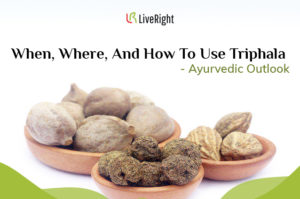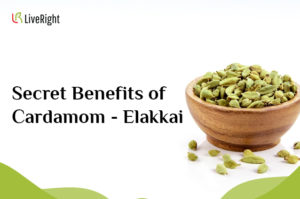Last updated on August 21, 2024 by Dr. Subashri Thanigaivel
Teeth aren’t that pearly until you smile. But ever thought how it would be if you had no teeth? What will that make you look like? You just can’t flaunt those dazzling smile of yours without the pearly whites. And that’s what makes it so important.
More often than not, we often overlook dental visits for the fear of the dentist, the instruments, the chair, or the sky-rocketing price the dentist charges. But before you come to any of those conclusions, just remember to be kind to your dentist, because they also have the same ‘fillings’.
Mouth- Window To Your Body
Did you know there are more bacteria in the human mouth than people on Earth?
Our mouth is a fascinating place full of stories. 90% of systemic diseases have oral signs.
For example, people with gum disease are two times more likely to develop heart disease, expectant mothers with poor oral hygiene are seven times more likely to deliver premature and low birth weight babies, and periodontal disease is the sixth complication of diabetes. Oral diseases are the fourth most expensive diseases to treat.
So what does this imply?

Taking good care of your mouth is a worthy goal. Since oral diseases are a major public health problem, maintaining good oral hygiene wards off many medical disorders. One may think oral hygiene has got nothing to do with the rest of your body, but truth be told, your mouth is the window to the rest of your body.
Ayurvedic Oral Health
In the surgical compendium of Ayurveda Sushruta Samhita, the definition of health is “the equilibrium of the three biological humors (doshas), the seven body tissues (dhatus), proper digestion and a state of pleasure or happiness of the soul, senses and the mind.”
When there is an imbalance among these, we see and experience symptoms of sickness.
RELATED: FIND MY PRAKRITI AND DOSHA
According to the Shalyatantra and Shalakyatantra (one branch of Ayurveda), 65 varieties of oral diseases can arise in seven anatomic locations-eight on the lips, 15 on the alveolar margin, eight in connection with the teeth, five on the tongue, nine on the palate, 17 in the oropharynx and three in a generalized form.
To prevent these Ayurveda advocates some procedures like:
Danta Dhavanam (Brushing)
Brushing is the prime factor in maintaining good oral hygiene. When you brush your teeth, you help remove food and plaque — a sticky white film that forms on your teeth and contains bacteria. Present-day research has shown that all the chewing sticks described in ancient Ayurveda texts (Circa 200 BC) have medicinal and anti-cariogenic properties.
Ayurveda recommends chewing sticks in the morning as well as after every meal to prevent oral diseases.
Use herbal brushes, approximately 12 inches long and the thickness of one’s little finger. These herb sticks should be either “kashaya” (astringent), “katu” (acrid), or “tikta” (bitter) in taste.
Method of use: Crush one end, chew it, and use this as a brush to clean your teeth.
The neem (margosa or Azadirachta indica) is a famous herbal chewing stick. Fresh stems of licorice (Glycyrrhiza glabra), black catechu or the cutch tree (Acacia Catechu Linn.), Arjuna tree (Terminalia arjuna), fever nut (Caesalpinia bonduc), and milkweed plant (Calotropis Procera) are also used for brushing.
Chewing on these stems facilitates salivary secretion and possibly helps in plaque control, while some stems have an anti-bacterial action.
Jihva Lekhana (Tongue scraping)
The main reason for tongue scraping is to prevent tongue coating and bad breath. Tongue scraping aims to remove odor-causing substances called volatile sulfur compounds (VSCs).
Tongue scraping stimulates the reflex points of the tongue. Removes unpleasant odor, improves the sense of taste, stimulates the secretion of digestive enzymes, and removes millions of bacteria growth.
Oil Pulling:
Oil pulling is an ancient Ayurvedic procedure that involves swishing oil in the mouth for oral and systemic health benefits.
This technique is claimed to cure about 30 systemic diseases ranging from headache and migraine to diabetes and asthma.
Oil pulling has been used extensively as a traditional Indian folk remedy for many years to prevent decay, oral malodor, bleeding gums, dryness of the throat cracked lips and for strengthening teeth, gums, and the jaw.
The oils used for oil pulling are cold pressed oil or sesame oil. Oil pulling therapy is very effective against plaque-induced gingivitis, both in the clinical and microbiological assessment.
Herbs that promote oral health
- Amla
Amla (Phyllanthus emblica) is a rebuilder of oral health. Amla works well as a mouth rinse or a decoction. It can take orally one to two grams per day in capsules for the long-term benefit of the teeth and gums. Amla supports the healing and development of connective tissue when taken internally.
2. Bilberry and hawthorn berry
Regular use of bilberry and hawthorn berry fruits stabilize collagen and strengthen the gum tissue.
3. Licorice
Licorice root promotes anti-cavity action, reduces plaque, and has an anti-bacterial effect
4. Other Herbs
Herbs such as yellow dock root, alfalfa leaf, cinnamon bark, and turmeric root are taken internally to strengthen the bone, which aids in holding the teeth in its place.
Easy Ways To Take Care Of Teeth At Home
- Brush your teeth twice a day. If you are not comfortable using neem or other herbal stick, then use a soft bristle brush. The ideal time for brushing your teeth should be for 2 minutes.
Make sure you change your brush every 3-4 months. Do not use any ”herbal” named commercial pastes. Instead, you can use Dashnakanti chooranam or Dantadhanava chooranam.
The best way to prevent any plaque, caries, or bleeding gums is to follow a proper brushing technique.

- After eating any kind of food, rinse your mouth with water so that the food particles stuck to the teeth get cleared.
If any food particle is stuck to the teeth, do not use safety pins or toothpicks to remove it. Rinse your mouth with water and use a brush to remove food particles.
- Minimize eating sweets and sweetened drinks. The probability of getting caries is higher when sugary drinks are taken that also include your tea and coffee.
To avoid this, swish some water after drinking.

- Eat healthy foods. Include fresh vegetables and fruits. Eating fresh, crunchy produce not only contains more healthy fiber, but it’s also the best choice for your teeth. Foods that are colorful like lemons, amla, oranges, and sweet limes are good for your gums.
Avoid the overly mushy processed and sticky stuff, stop cutting things into tiny pieces, and get those jaws working

- Check if your drinking water contains fluoride in it. Many bottled and filtered water do not contain fluoride in it.
Fluoride prevents tooth decay by making the enamel more resistant to the action of acids. They speed up the buildup of healthy minerals in the enamel, further slowing the occurrence of decay.
- Avoid smoking. Smokers have more teeth and gum problems than non-smokers. Smoking leads to a dry mouth and hence the saliva secretions decrease. This makes them susceptible to caries.
Smoking also leads to a decrease in blood supply to the gums, which makes them devoid of nutrients and ultimately gum problems.

- Floss at least once a day. Flossing removes plaque that is left behind after brushing the teeth. Flossing removes the particles from between the teeth, which are not feasible with a toothbrush.

- Drink plenty of water. Water continues to be the best beverage for your overall health — including oral health. So don’t let your mouth dry. A dry mouth leads to the formation of caries.
Teeth be Told
Life is counted by age but a healthy life by the number of teeth.

A genuine smile comes from the heart, but a healthy smile needs good care. This is no fairy tale where a tooth fairy is coming to save your tooth, the only person who can do it is -you. Or come to us for support.
As someone said, old is gold. It’s always good to go back to our roots and immerse ourselves in its goodness. Ayurveda has solutions to everything. Deep your toe and experience the richness of nature.




